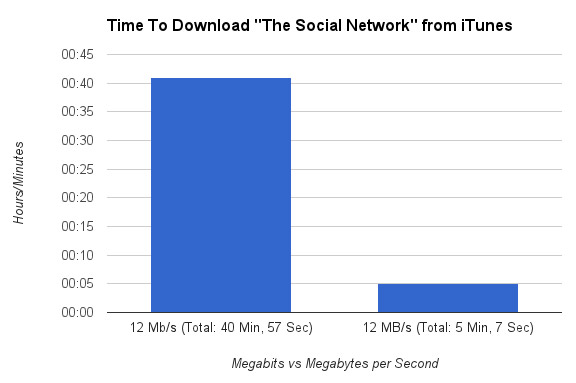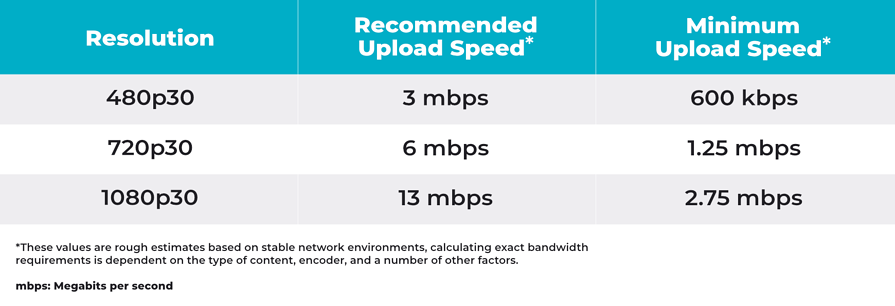Demystifying Megabits Per Second: What Consumers Need to Know
Demystifying Megabits Per Second: What Consumers Need to Know
Blog Article
Demystifying Megabits Per Second: A Guide to Picking the Right Internet Plan
Comprehending the idea of megabits per second (Mbps) is essential when selecting a web plan that straightens with your particular requirements. With the wide variety of strategies available, how do you discern which one is appropriate for you?
Comprehending Megabits Per 2nd

To realize the value of Mbps, it is necessary to recognize that it reflects the maximum data transfer offered for data transfer. For instance, a plan providing 100 Mbps permits for the synchronised transmission of information at that price, though real rates may vary because of network blockage, range from the solution supplier, and the performance of your home network equipment.
Additionally, understanding the distinction in between megabytes and megabits is important. While megabits signify the speed of data transfer, megabytes (1 byte = 8 little bits) determine the size of documents. Downloading and install a 100 Megabytes file on a 100 Mbps connection theoretically takes concerning 8 seconds, barring any kind of disruptions.
Eventually, choosing an appropriate Mbps ranking based on your household's internet use is crucial for making sure an adequate online experience.
Exactly How Internet Rate Affects Tasks
Internet speed plays a crucial function in determining how successfully people can involve in numerous online tasks. Basic activities like browsing sites or inspecting e-mails generally call for lower speeds, commonly around 1-5 Mbps. Megabits Per Second.
On-line pc gaming, an additional preferred task, additionally relies heavily on internet rate. A steady link of at the very least 15-25 Mbps can decrease and offer a competitive edge latency, which is important for real-time interactions. On the other hand, video conferencing applications, progressively important for remote work, benefit from speeds of at least 3-8 Mbps for clear audio and video top quality.
In houses with several customers, simultaneous activities can stress transmission capacity. In such situations, higher speeds-- 50 Mbps or even more-- are a good idea to accommodate diverse requirements without a decrease in efficiency. Hence, comprehending the relationship between internet rate and certain online tasks is important for choosing a suitable plan that meets specific or family requirements successfully.
Different Sorts Of Internet Plans
Picking an ideal internet plan needs an understanding of the numerous choices available on the market. Internet solution providers (ISPs) commonly use several kinds of strategies, each dealing with various user requirements and preferences.
Broadband strategies are the most usual, offering high-speed internet via cord or DSL connections. These strategies appropriate for houses that engage in numerous online activities concurrently, such as video, video gaming, and streaming conferencing - Megabits Per Second. Fiber-optic strategies, while much less widely offered, provide the fastest rates and the best performance, making them excellent for tech-savvy users or those with substantial bandwidth needs
Set wireless and satellite plans serve areas where typical wired connections are not available or unstable. While company website they can be advantageous for country customers, they typically include greater latency and reduced rates contrasted to broadband alternatives.
Mobile hotspot intends allow users to access the internet through cellular networks, offering versatility for those that call for internet on the move. Last but not least, some ISPs offer tiered plans with varying data and speeds caps, allowing clients to select a strategy that aligns with their usage patterns and budget plan. Comprehending these different kinds of internet strategies is essential in making an informed decision.
Determining Your Rate Requirements
Regularly analyzing your speed requires is vital for choosing a web plan that fits your way of life. Understanding the demands of your household or service can aid in choosing an ideal plan.
Next, think about the tasks you engage in online. Fundamental jobs such as searching and emailing typically need reduced speeds, around 1-5 Mbps. Nevertheless, streaming video clips in high meaning, online gaming, or big file downloads might require rates upwards of 25 Mbps or even more.
Furthermore, take into consideration the number of users. Megabits Per Second. A house with multiple people streaming material or video gaming at the very same time will certainly need significantly much more data transfer than a single-user circumstance
Lastly, remember that internet speeds can be impacted by variables such as network blockage and the top quality of your router. By thoroughly evaluating your speed needs, you can make a notified choice, making certain that your internet plan straightens with your everyday use and future needs.
Tips for Choosing the Right Plan
Picking the right internet plan calls for careful consideration of several essential elements to ensure it meets your demands. First, evaluate your use patterns-- whether you are streaming, gaming, or functioning from home-- since these tasks demand different bandwidth levels. Typically, homes with high-bandwidth tasks or numerous customers click here to find out more will gain from higher-speed strategies.
Following, take a look at the information caps related to various plans. Some carriers enforce restrictions on data usage, which can lead to additional charges or strangled speeds upon exceeding those limits. Picking an unrestricted data plan may be helpful for heavy individuals.
Additionally, take into consideration the dependability of the provider. Research customer testimonials and ask about the copyright's uptime and client service performance. If it lacks dependability or support., a cheaper plan might not be a good deal.
Last but not least, evaluate marketing offers and contract terms. While initial costs can be appealing, know the long-term expenses and whether the plan requires a prolonged agreement. By evaluating these variables, you can make an educated choice that straightens with your internet requirements and spending plan, ensuring you pick the most suitable plan for your house.

Conclusion
To conclude, understanding megabits per second (Mbps) is vital for choosing an appropriate internet plan. Analyzing house usage patterns and the demands of linked gadgets can dramatically affect the option of plan. By identifying the particular speed needs for different on the internet tasks, individuals can make informed decisions that improve their overall internet experience. Ultimately, picking a plan with adequate transmission capacity guarantees contentment and find out here performance in navigating the electronic landscape.
Recognizing the concept of megabits per second (Mbps) is crucial when choosing a net plan that straightens with your particular demands. Thus, comprehending the relationship between internet rate and certain online tasks is vital for picking an appropriate plan that fulfills specific or household needs efficiently.
Mobile hotspot prepares enable customers to access the internet through cellular networks, providing flexibility for those who call for internet on the go. Some ISPs offer tiered plans with varying data and rates caps, making it possible for consumers to choose a plan that lines up with their use patterns and spending plan.Frequently evaluating your speed needs is necessary for picking a web plan that fits your way of living.
Report this page